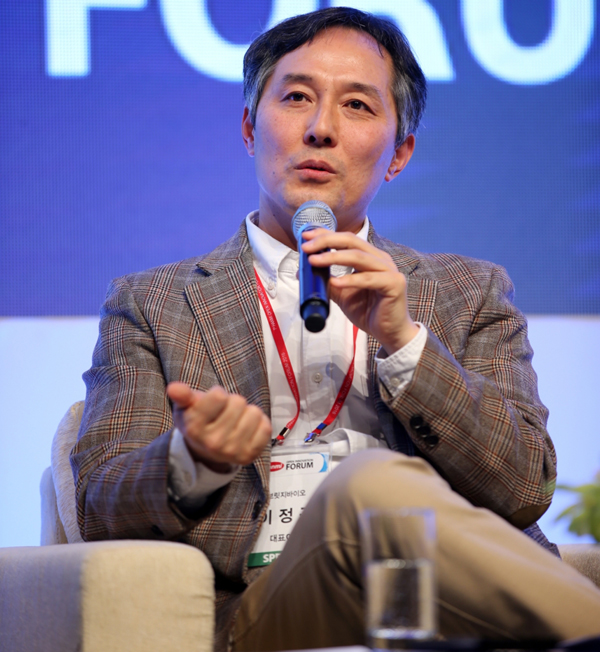The government’s excessive intervention in the biopharmaceutical service market has deprived private players of a chance to grow as contract research organizations, or CROs, an expert said.
CROs provide research services for drugmakers, biotech firms, and medical device manufacturers on a contract basis.

Lee Jung-kue, CEO of Bridge Biotherapeutics, said the government had a vague role in supporting the biopharmaceutical industry and excessively intervened in an area where the private sector had to lead.
“The government and state-run centers should think which they shouldn’t do, not what they can do,” Lee said at the 2017 Bio Future Forum in Seoul, Thursday, in response to a question from the floor that how the government should support the biopharmaceutical service sector.
State-run centers that provided CRO services with the government’s financing are the “main culprit” behind the private sector’s failure to grow CROs, he noted.
Currently, some state-run research institutes, including the Korea Institute of Toxicology, provide nonclinical research services as CROs.
“By the time Korean private players were ready to make use of good biopharmaceutical technologies, global CROs did not appear in Korea but China,” Lee said.
He warned that the state-run centers that received the funding from the government were complacent about their CRO-related work, which makes their service poor.
“The government spoon-fed them too much, which is why local CROs could not grow properly. It is important for the government to know what they should not do. Hard work in the wrong direction does not produce a good result,” Lee said.
Another expert pointed out that the private sector, instead of the government, should lead the growth of a “bioeconomy.” The government has recently announced its long-term plan to nurture biopharmaceutical and biotechnology sectors by 2025.
“Bioeconomy is not something that the government can lead. The government should help the private sector lead,” said Choi Yoon-hee, a research fellow at the Korea Institute for Industrial Economics & Trade. “The government seems to have failed to earn public trust and persuade the public why Korea should nurture a bioeconomy.”
She took an issue with the government’s poorly designed support for the digital healthcare industry, urging the authorities to devise up various medical payment methods applicable to digital healthcare products.
“The U.S. government does not seem to pay a lip service in nurturing digital healthcare. They included the industrial support policy in a state-run program to reduce social costs of diabetes and prepared a payment structure,” Choi said. “If the government wants to promote digital healthcare, they should be able to persuade the public with a well-prepared program which can not only grow a bioeconomy but reduce medical costs.

